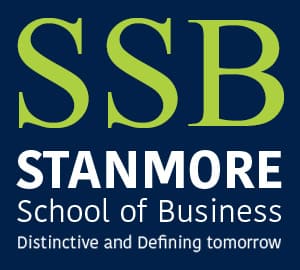Real-Life Success Stories: Professional Certificate in IoT Robotics Alumni
-- viewing nowIoT Robotics professionals are shaping the future of technology and innovation. Our Professional Certificate in IoT Robotics program has empowered numerous individuals to excel in this field.
2,431+
Students enrolled
GBP 140
GBP 202
Save 44% with our special offer
About this course
100% online
Learn from anywhere
Shareable certificate
Add to your LinkedIn profile
2 months to complete
at 2-3 hours a week
Start anytime
No waiting period
Course details
Understanding the basics of Internet of Things (IoT) and its applications in robotics is crucial for professionals in this field. This unit covers the core concepts of IoT, including device connectivity, data processing, and communication protocols. • Robotics Programming
Proficiency in programming languages such as Python, C++, and Java is essential for robotics professionals. This unit focuses on teaching programming skills, including object-oriented programming, data structures, and algorithms. • Machine Learning and AI
Machine learning and artificial intelligence (AI) are key components of IoT robotics. This unit covers the basics of machine learning, including supervised and unsupervised learning, neural networks, and deep learning. • Robotics Hardware and Sensors
Understanding the different types of robotics hardware and sensors is vital for professionals in this field. This unit covers the basics of robotics hardware, including actuators, motors, and sensors, as well as their applications in robotics. • Robotics Software Development
This unit focuses on teaching software development skills, including software design patterns, testing, and debugging. It also covers the use of software frameworks and libraries in robotics development. • Robotics Project Development
This unit provides hands-on experience in developing robotics projects, including project planning, design, and implementation. It also covers the use of robotics development tools and platforms. • Robotics Safety and Ethics
Understanding the safety and ethical considerations of robotics is crucial for professionals in this field. This unit covers the basics of robotics safety, including risk assessment, hazard analysis, and safety protocols. • Robotics Communication Protocols
This unit focuses on teaching communication protocols used in robotics, including Wi-Fi, Bluetooth, and Ethernet. It also covers the use of communication protocols in robotics development. • Robotics Data Analysis and Visualization
Understanding data analysis and visualization techniques is essential for professionals in this field. This unit covers the basics of data analysis, including data preprocessing, feature extraction, and visualization. • Robotics Career Development
This unit provides guidance on career development in robotics, including resume building, interview preparation, and professional networking. It also covers the use of professional certifications and training programs in robotics.
Career path
| Career Role | Description |
|---|---|
| IoT Robotics Engineer | Designs and develops IoT robotics systems, integrating sensors, actuators, and communication protocols to create intelligent and autonomous robots. |
| Robotics Developer | Develops software and hardware for robots, focusing on motion planning, control systems, and sensor integration to create efficient and safe robots. |
| Automation Specialist | Implements automation solutions using robotics, PLCs, and other technologies to improve manufacturing efficiency, productivity, and quality. |
| Industrial Automation Engineer | Designs and develops automation systems for industrial processes, using robotics, sensors, and control systems to optimize production and reduce costs. |
| Artificial Intelligence/Machine Learning Engineer | Develops AI and ML algorithms to enable robots to learn from data, make decisions, and adapt to changing environments. |
| Data Scientist | Analyzes and interprets data from IoT robotics systems to identify trends, optimize performance, and improve decision-making. |
Entry requirements
- Basic understanding of the subject matter
- Proficiency in English language
- Computer and internet access
- Basic computer skills
- Dedication to complete the course
No prior formal qualifications required. Course designed for accessibility.
Course status
This course provides practical knowledge and skills for professional development. It is:
- Not accredited by a recognized body
- Not regulated by an authorized institution
- Complementary to formal qualifications
You'll receive a certificate of completion upon successfully finishing the course.
Why people choose us for their career
Loading reviews...
Frequently Asked Questions
Course fee
- 3-4 hours per week
- Early certificate delivery
- Open enrollment - start anytime
- 2-3 hours per week
- Regular certificate delivery
- Open enrollment - start anytime
- Full course access
- Digital certificate
- Course materials
Get course information
Earn a career certificate

